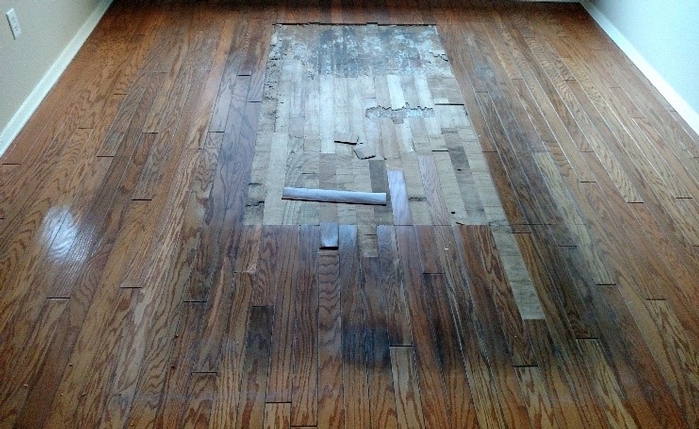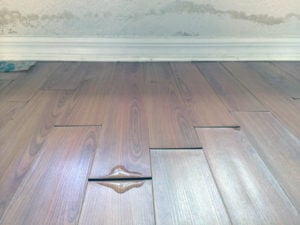What're your beliefs about Locating water leaks?

Unfortunately, environment change and also international warming have actually harmed the area. Once secure have experienced extra flooding as well as groundwater breach, lots of areas that were. The latter can penetrate your home even before it appears the surface.
Recognizing what signs to look out for can help you mitigate water damage. You need to likewise examine all your pipes to capture any visible leaks. If your basement is always damp, it's highly likely that groundwater is can be found in from underneath your house or nearby.
Because it can lead to mold and mildew and also mildew growth, climbing groundwater is a pressing issue. It can additionally hasten wood rot, resulting in architectural concerns. Boosted groundwater makes your residence more prone to floods when it rains. However do not misery, because you can still avoid groundwater from damaging your cherished residence. Right here's exactly how!
Focus On Waterproofing the Cellar
Flooding should not have to come right into your residence prior to you waterproof the cellar or crawlspace. If you dilly-dally, it will result in a substantial issue when groundwater breaks in with rain as well as flood.
Fill the cellar with more concrete to avert any kind of concerns brought on by groundwater. Since you need to prep the area and eliminate all the things stored there, this takes preparation. Making this a top priority is the most effective, long-lasting service. Pouring concrete as well as executing waterproofing measures seals your basement and protects it from water breach.
Take Into Consideration Mounting a French Drainpipe System
This system includes polypropylene tubing. It acts as a channel that's line with concrete. Most importantly, they don't look apparent since these drains appear like a pipeline or trench that can easily mix where it's positioned. Since it will certainly protect against water from leaking into your structure, this system safeguards your home from additional complications.
When you install this kind of drainpipe system, you protect your foundation. As an outcome, you will not have to worry regarding significant repairs in case of water damages.
Invest in A Number Of Sump Pumps
The key goal of this pump is to redirect the water from entering your home. This can safeguard your home from increasing groundwater.
A sump pump will offer a layer of security if you really feel anxious concerning groundwater seeping right into your cellar. Since they are very easy as well as quite affordable to set up, numerous choose this. Pay interest to when you utilize it due to Visit Link the fact that it can increase up your power expenses.
Raise the Home Completely
Raising your house completely is an efficient solution to protect against groundwater from coming in. The general procedure involved constructing a brand-new, higher foundation to raise the residence over the flood area.
Applying these ideas will certainly assist safeguard your residence as well as possessions versus water damage. However if you have actually done whatever that you perhaps can however water still seeps right into your house, call a water remediation firm right now to aid you come back on the right track.
If your basement is always damp, it's highly most likely that groundwater is coming in from beneath your Find Out More residence or close by.
Enhanced groundwater makes your residence much more vulnerable to floods when it rainfalls. Don't anguish, due to the fact that you can still avoid groundwater from harming your precious home. Load the cellar with more concrete to prevent any problems created by groundwater. A sump pump will offer a layer of protection if you really feel concerned concerning groundwater seeping right into your cellar.
Tips for removing water and drying your hardwood flooring after a flood
Water and wood just don’t mix. If you’ve been following the aftermath of Hurricane Harvey or Hurricane Irma, this should come as no surprise. When water sits on top of hardwood floors, it can permanently ruin the hardwood as the wood will absorb the water through its pores causing warping and discoloration. So, if you have a flood or water damage (or even just a spill) on your hardwood flooring, you’ll want to remove the water and dry your floors as quickly as possible.
What happens when your hardwood absorbs water?
Wood can get wet (or moist) in a number of ways – a flood from outside from the rain, leaky pipes (or frozen pipes), ice damming, a toilet overflow, a leaky roof, a hurricane or storm, an appliance breaks or leaks (e.g. dishwasher or washing machine), a fire (with water used to extinguish the fire), water spills/accidents, pet accidents, a high water table in the ground that then forces water into your sub-floor from the ground.
Will my insurance company cover my water damaged flooring?
Whether or not your insurance will be cover the damage depends on your insurance plan and the cause of the damage. Please note that most homeowners (less than 20%) have flood insurance. So, if the damage was from flooding (i.e. it came from outside the house), there’s a good chance you aren’t covered.
Use a wet vacuum to suck up all the standing water
You want to quickly absorb as much water as you can. Note: you may want to turn to a professional mitigation company as they specialize on water extraction and have the best equipment. If you choose to do this yourself, here’s a wet vacuum I’d recommend. Note: keep vacuuming even after you’ve removed all visible water as there is still water from the invisible pores in the wood. You’ll see that that the wet vacuum continues to suction up water for a while.
Clean the surface with a disinfectant
Remember, you need to prevent mold in addition to preserving your hardwood floors. You should use a non sudsy disinfectant (e.g. Mr Clean). Once you’ve finished this, use the wet vacuum again to remove any leftover water.
Use a dehumidifier
Place a dehumidifier in the center of room. If you can get more than one, that’s even better. Be sure to clear the water every few hours (and make sure the filter is clean as well). Make sure the dehumidifier runs for at least 24 hrs, but you may need to use it for 2 to 3 days or even longer, pending on the severity of the water. In some cases, it’s advisable to use a dehumidifier for several weeks.
Supplement with large fans (and air conditioning)
Accelerate the drying process with fans. Point the fans towards the floor. Also, be sure to open the windows around 2 inches for better air circulation/ventilation (and keep the door open). This will allow excess moisture to evaporate and create more cross ventilation. (If it’s raining or extremely humid outside, then keep the windows shut and just keep the doors to other rooms open and use a dehumidifier). Put the fans on the highest level (i.e. full blast) and point them towards the floor. If you have some that oscillate, even better.
https://theflooringgirl.com/blog/save-hardwood-floors-water-damage-flood/

Hopefully you enjoyed our piece on Hacks to detect leaks. Many thanks for spending some time to browse our piece. Remember to take a moment to distribute this blog if you enjoyed it. Thanks for your time. Visit us again soon.